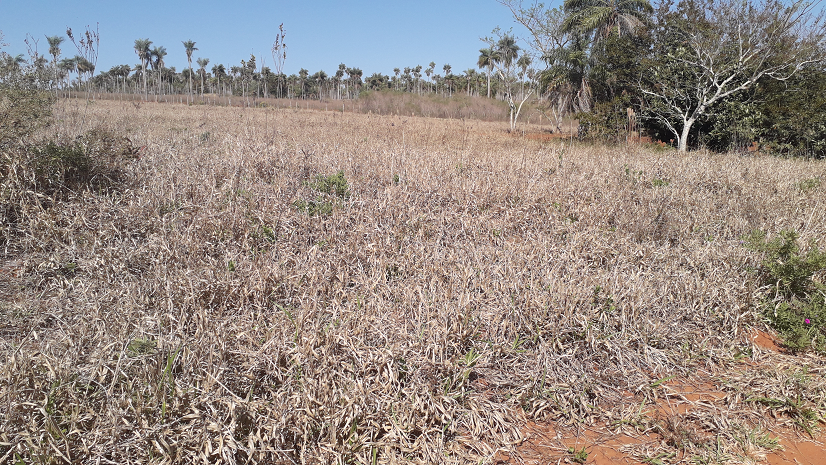Winter in Paraguay is the dry season.
Much of the rain which falls in Paraguay comes in the form of electrical storms. These are driven by high temperatures evaporating moisture from the ground.
The temperature being a little lower during the winter there is less heat available to drive the formation of clouds and then storms.
Furthermore Paraguay lies far from the sea and so any weather systems blowing in from over the seas have had plenty of time to loose all their moisture long before they reach Paraguay.
As such it is normal and expected that during the winter months less rain should fall.
Winter in Paraguay runs from June to September. It is not though a time of prolonged cold periods. Rather most days are bright and sunny. Just a little cooler than the rest of the year.
This pleasant weather is lost just a few times during the winter months. At those times systems of cold air blow up from the antarctic and drive temperatures below zero for a few days.
These cold spells are always driven on by a strong dry wind and never last for more than a few days.
Every year frost falls upon my lands. Some years there may just be one frost during the winter. This year though there were four making it a very long winter.
It has also been an unusually dry winter. In normal years there are to be expected at least a couple of prolonged wet spells in the winter months. This year however there have been just a few scattered wet days.
That almost complete lack of rain along with the record temperatures being reached on fine days hint at how the climate has changed. Looking back at how different the general weather patterns are from those seen in the past there is little doubt that climate change has affected Paraguay. The climate is not changing it has changed.
The net result of the long dry winter and the several frosts that have coated the land is a land devoid of moisture.
Water levels in the streams and rivers are very low and the grass lies upon the land as dry straw.
The dry grass always brings a danger of fire throughout the winter. Last year there were fires burning in every corner of the land. This year despite a large public information campaign and threats of fines there were again many fires lit to clear patches of land which as always ran out of control.
The problem was slightly less on the whole than last year and the a wet day last week brought the worst of them under control.
Now as spring arrives the plants know it is time to grow again. Trees are all putting on fresh leaves. The lack of rain means though there is less water in the soil to support the growth. So leaves form and leaves fall rather than maturing as the trees lack the water they need for growth.
The trees once they are well watered will be filled with fresh foliage but for now are wasting their energy on leaves they cannot keep.
It remains to be seen how this will effect fruit trees. This year in the local area there was very little fruit on the citrus trees, but it is too early to tell what next years harvest will be like.
Other things do need planting and unless rains arrive some farmers may struggle with their crops.
Still the ground is covered by a brown blanket of dead dry grass and this too needs watering before it can turn green once more. As long as the grass remains in that state the risk of fire remains.
I am very glad I am not a farmer waiting for the right time to plant crops.
All I have needing to go in the ground are a number of trees I have been growing for the past year in pots. They need planting out be right now they would not survive if they were.
The soil is dry and without any moisture. The soil is a heavy clay soil which and right now the surface is dust and all the is below baked solid. Only the toughest of plants could force their roots through that.
The rains will come at some point to Paraguay. Then everything will burst once more into life. The land will quickly become green and the dry of winter will be forgotten.
However winter will return and there is no reason to suspect that the general drying trend that has been seen in recent years will not continue.
Some agriculture may have to change and stronger anti fire measures will need to be put in place. The people though will adapt as they must do and the best will be made of whatever the future climatic conditions turn out to be.


Recent Comments